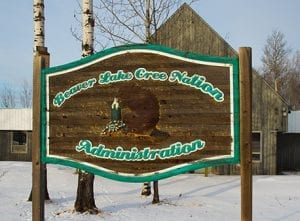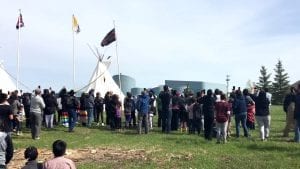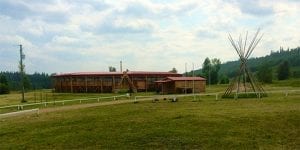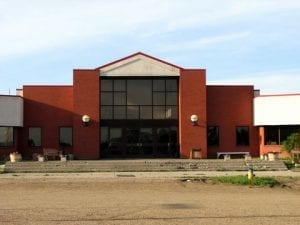Educate & Prevent
EDUCATION & PREVENTION
We are working towards a region, province and country without FASD, and the first step in that is education so we can empower people to make the right choice. We believe that treating FASD means engaging and educating everybody in a child’s and mother’s support network. The LCFASD works together with everyone to help them understand an individual’s needs and to be a source of support to them throughout their lives.
You can learn more about FASD at our resource centre.
Prevention conversation
Most of us have heard the message, “It is safest not to drink during pregnancy,” but Fetal Alcohol Spectrum Disorder can be a hard thing to actually talk about. It’s preventable, but the issue is complicated and we all have a role to play in contributing to a healthy pregnancy experience and FASD prevention. There is still so much misunderstanding about what FASD means, how it happens and also who is responsible for preventing it.

An unplanned pregnancy or lack of information about the impact of alcohol on an unborn baby can mean that an expectant woman can unknowingly put the fetus at risk by drinking. Women who continue to drink after learning they are pregnant are sending us a signal that they are seeking help of some kind—and that can be the result of peer pressure, family troubles, addiction and mental health concerns.
The FASD Prevention Conversation is a new approach. It focuses on the power of relationship and conversation to inspire change and invite open, honest dialogue. Reducing anxiety and providing practical strategies for talking with women about the use of alcohol during pregnancy is key.
We welcome the opportunity to come and speak with your group about how to engage in effective, respectful conversations with women about alcohol and pregnancy.
Good information and a healthy support system can make a big difference.
The Best Amount Is None
We don’t know how much drinking will hurt an unborn baby, but it’s safest to not have anything at all to drink if you are going to have a baby or if you are planning to have a baby.
MOTHERS-TO-BE MENTORSHIP PROGRAM
The Mothers-to-be Mentorship Program is a free, non-judgemental, 100% voluntary, one-on-one support program that assists women to have and raise healthy babies. We know that the women who come to the program are dealing with various situations, so that women will never be asked to leave the program due to a setback or relapse.

Cold Lake First Nation

BONNYVILLE

ST. PAUL

LAC LA BICHE

BEAVER LAKE CREE NATION

FISHING LAKE MÉTIS SETTLEMENT

ELIZABETH MÉTIS SETTLEMENT

KIKINO MÉTIS SETTLEMENT

BUFFALO LAKE MÉTIS SETTLEMENT

FROG LAKE FIRST NATION

KEHEWIN FIRST NATION

HEART LAKE

Goodfish lake
The program is for women who are pregnant, are planning to become pregnant or who have recently given birth and are dealing with alcohol and/or drug use and want to make a real, positive change for their future.
Mentors have the flexibility to do whatever it takes to help the women in the mentorship program. This can involve finding alcohol and drug treatment, connecting to community resources, and assisting women to find shelter, financial support, and healthcare.
COMMUNITY TRAINING SERVICES
STUDENTS
College and High School StudentsPARENT
and Caregiver GroupsNON-PROFIT
and Private OrganizationsFRONTLINE
WorkersSELF HELP
GroupsCOMMUNITY GROUPS
and MunicipalitiesTraining regarding several aspects of FASD is available to schools, agencies and organizations in the Lakeland region. We tailor our presentations to meet the needs of individual groups and provide varying session lengths.
Options for training include:
- What You Need to Know About FASD: For Jr. and High School Students
- different for different grade/age groups
- Foundations in FASD (Level one training): A comprehensive look at FASD as a whole body and brain based disability.
- Understanding FASD: (Level one training): FASD Basics, “It’s About the Brain”
- FASD in Your Environment (Level two training: Previously known as FASD 201): Strategies for Identifying and Better Managing FASD in Your Environment. This training is tailored to the organization or group requesting it and requires attendees to have taken a level one training as a pre-requisite.
- FASD & Harm Reduction (Level two training): This training discusses strategies to lessen the impacts of adverse outcomes and reduce harms in the lives of individuals with FASD
- When and How to Refer Someone for an FASD Diagnosis?
- The FASD Prevention Conversation:
Let’s Talk About Alcohol and Pregnancy: A Shared Responsibility
- An interactive session that informs and invites the community to get involved in actively preventing FASD through planning, understanding, raising awareness and providing support to ensure the healthiest of pregnancies for our population.
“Let’s Get Real” About Alcohol and Pregnancy – The Adolescent Program
- Provides a Train the Trainer session and Resources for CALM teachers, Health Teachers, Student Services staff, and Professionals who work with youth to enable them to engage with young people (11 – 19 years old) in conversations regarding alcohol, sex, birth control, pregnancy and FASD. The program meets the requirement of several of the Alberta School curriculum components.
Call us to discuss your training needs with our training coordinator.